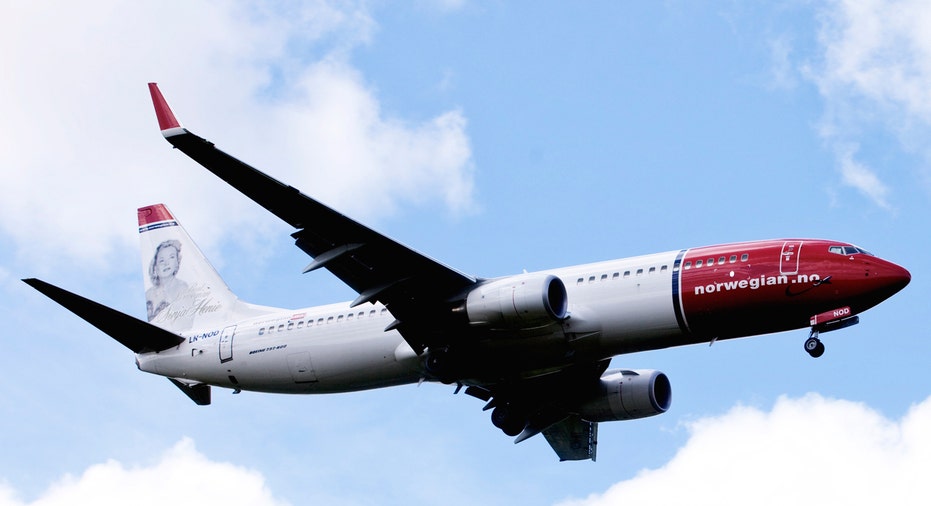Norwegian Air says on course to cut costs, despite rising pay for pilots

OSLO, Oct 26 (Reuters) - Fast-growing budget airline Norwegian Air said on Thursday it expected to reduce its unit costs next year with another big increase in capacity, seeking to reassure investors' concerns about rising costs.
However, Europe's third-largest budget airline by passenger numbers said it expected pay levels to rise for pilots as it seeks to compete with rivals such as Ryanair for the additional air crew needed to expand its network.
In reporting third-quarter results which fell short of analysts' forecasts, the company said it expected to increase capacity by another 35 percent in 2018 as it brings more planes into service.
Norwegian has embarked on an ambitious growth plan, buying more than 200 new fuel-efficient jets, in order to try to grab a slice of the lucrative transatlantic market.
But investors worry its drive to put more passengers on more planes has been pushing up costs quickly without producing higher returns.
Next year Norwegian Air is aiming to get unit costs down to 0.38-0.39 crowns per available seat and kilometre flown (ASK), excluding depreciation, from 0.42 crowns this year, it said on Thursday.
Its third-quarter adjusted operating profit before leasing and depreciation (EBITDAR) was up 3.18 billion crowns from 2.57 billion a year ago, but below the average forecast of 3.63 billion crowns given in a Reuters poll of analysts.
The earnings shortfall was mainly explained by higher costs, particularly related to technical maintenance and other flight operations, said broker Pareto Securities, which has a 'buy' rating on the shares.
The share price was down 3.8 percent at 232.5 crowns at 1100 GMT, taking the drop this year to 19 percent.
PILOT SHORTAGE?
Last summer delays in plane deliveries from Boeing and a lack of pilots led to cancellations cost the firm around 1 billion crowns ($124.36 million), Chief Executive Bjoern Kjos said on Thursday.
Norwegian Air will avoid the problem next summer as more pilots become available, he said.
"Due to the collapse of Air Berlin and the other two airlines (Monarch and Alitalia) we have contracted around 100 pilots in the last 14 days," Kjos told a news conference.
"If nothing unexpected happens, we expect to have enough short-haul pilots."
Next year 25 new aircraft, of which 11 are Boeing 787 Dreamliners, will go into operation. "By the third quarter next year we will more or less finalise the long-haul ramp-up and stabilise our operation," said Kjos.
Rising pilot costs and a shortage of pilots is nevertheless a problem for the industry, said the CEO, himself a former fighter jet pilot, adding that he expected some other airlines might find themselves short of air crew next year.
"It depends on how many pilots come out of Alitalia," he said. "We know how many pilots come out of Monarch and Air Berlin," he said.
"Most of the Monarch pilots are going to Norwegian and we are very happy for that, they are very experienced pilots."
"That's why we don't foresee for ourselves that we will have a shortage of pilots next year."
($1 = 8.0409 Norwegian crowns) (Editing by Terje Solsvik, Greg Mahlich)



















